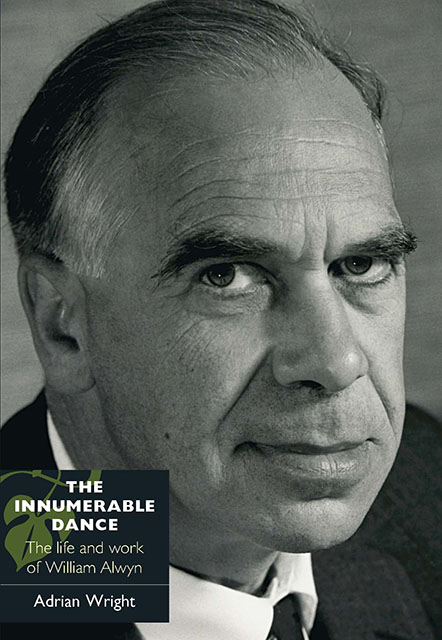Book contents
- Frontmatter
- Contents
- Illustrations
- Preface and Acknowledgements
- Introduction
- 1 Early Closing
- 2 The Music of Northampton
- 3 A Number of Scotsmen
- 4 Olive
- 5 Union and Exile
- 6 A Purpose for Cinema
- 7 A War of his Own
- 8 Is Your Journey Really Necessary?
- 9 A Coming British Woman Composer
- 10 Towards a Festival
- 11 Questions of Inspiration
- 13 The Late Romantic
- 14 E-Day
- 15 Symphonic Reflections
- 16 Soundless Music
- 17 The Other Suffolk Composer
- 18 The Blythburgh Operas
- 19 The Stillness
- 20 Living and Learning
- 21 Precious Toy
- Epilogue
- Notes
- List of Alwyn’s Works
- Discography
- Bibliography
- General Index
- Index of Alwyn’s Works
- Frontmatter
- Contents
- Illustrations
- Preface and Acknowledgements
- Introduction
- 1 Early Closing
- 2 The Music of Northampton
- 3 A Number of Scotsmen
- 4 Olive
- 5 Union and Exile
- 6 A Purpose for Cinema
- 7 A War of his Own
- 8 Is Your Journey Really Necessary?
- 9 A Coming British Woman Composer
- 10 Towards a Festival
- 11 Questions of Inspiration
- 13 The Late Romantic
- 14 E-Day
- 15 Symphonic Reflections
- 16 Soundless Music
- 17 The Other Suffolk Composer
- 18 The Blythburgh Operas
- 19 The Stillness
- 20 Living and Learning
- 21 Precious Toy
- Epilogue
- Notes
- List of Alwyn’s Works
- Discography
- Bibliography
- General Index
- Index of Alwyn’s Works
Summary
William Alwyn’s name may bring not a flicker of recognition to most of the British public, but through two or three generations his music has probably been heard by most of them, somewhere. Having a life of its own, it floats into the air through whatever conduit it can, via hi-fi systems, tracked alongside reels of film, out of radios, flooding concert halls. The music may have meant something, even for a moment, but the name of the person who made it goes by. During one of his leaves from the Navy my father probably heard the music on a visit to one of the London News Theatres in the 1940s: there were such places at Waterloo and Victoria and Baker Street and one next to the Empire Leicester Square. The most famous was the Piccadilly News Theatre in Great Windmill Street (handy, too, for a visit to the Windmill Theatre, where Vivian Van Damm’s Revuedeville offered comedians and nudes with strategically placed plaster in sometimes Grecian attitudes) where an hour might be spent watching newsreels, cartoons, short documentaries and generally keeping track of the progress of the war with Germany. The Woodbine-thick atmosphere of these little palaces was replicated all over the country. In February 1937 the Bijou News-Reel Cinema opened in Newcastle, one of three news theatres to start up in the city that year. A film industry that never missed an opportunity, and was now spurred into action by the necessity of propaganda, began churning out short features, presented by the Ministry of Information or Shell Films (their first feature, about malaria, was shown in 1941) or the GPO Film Unit. A generation of men and women watched the images as they progressed, every one of the raincoat-belted customers probably coming across at least one of the documentaries to which Alwyn contributed a score – perhaps his debut film, The Future’s in the Air (1936), the music commissioned from him only because the intended composer, Raymond Bennell, was not at hand when needed. Two years later the casual cineaste might have seen one of the nine documentaries for which Alwyn had written the music – Monkey into Man perhaps, or Whipsnade Freedom (Free to Roam). Bennell’s absence had opened the door on one of the most prolific careers in British film music.
- Type
- Chapter
- Information
- The Innumerable DanceThe Life and Work of William Alwyn, pp. 1 - 3Publisher: Boydell & BrewerPrint publication year: 2008



